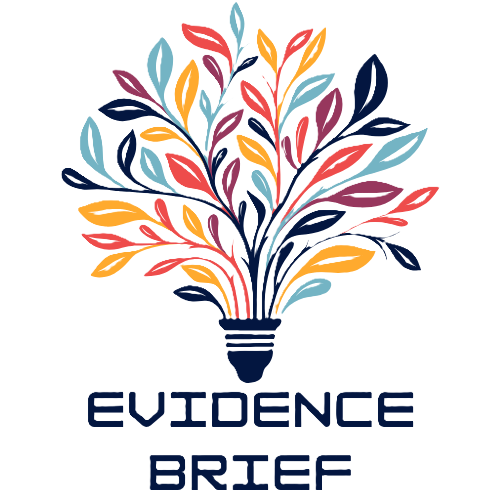Choosing the perfect early childhood education program can feel like finding a needle in a haystack of finger paintings and building blocks. Parents want nothing but the best foundation for their little ones but navigating through countless options can be overwhelming.
The right early childhood education program shapes a child’s academic journey and sets them up for lifelong success. From Montessori methods to play-based learning these specialized schools offer unique approaches to nurturing young minds during their most formative years. Research shows that children who attend high-quality early education programs demonstrate better social skills higher academic achievement and increased earning potential later in life.
What Makes a Top Early Childhood Education Program
Quality early childhood education programs combine research-based teaching methods with experienced educators to create optimal learning environments for young children.
Curriculum and Teaching Methods
Top early childhood programs feature developmentally appropriate curricula that integrate play-based learning with structured academic activities. The curriculum incorporates hands-on experiences in literacy development through storytelling sessions interactive writing activities. Math concepts emerge through counting games pattern recognition exercises block building. Science exploration happens via nature walks simple experiments observation stations. Programs balance child-directed activities with teacher-guided instruction maintaining an 80/20 ratio between experiential learning formal lessons. Creative expression flourishes through art music movement activities integrated throughout daily schedules. Social-emotional development receives dedicated focus through cooperative play group projects conflict resolution practice.
Teacher Qualifications and Experience
Leading early childhood programs employ educators with specialized credentials in child development education. Teachers hold bachelor’s degrees in early childhood education child development or related fields. Lead teachers maintain state teaching licenses specialized certifications in early learning methodologies. Classroom ratios follow NAEYC guidelines: 1:6 for infants 1:10 for toddlers 1:15 for preschoolers. Staff participate in 30+ hours of professional development annually focusing on emerging best practices. Teachers demonstrate 5+ years of classroom experience working with young children. Programs ensure assistant teachers hold associate degrees relevant certifications. Regular mentoring coaching sessions support continuous improvement in teaching practices assessment methods.
Leading Universities for Early Childhood Education Degrees

Universities offering early childhood education degrees provide specialized programs that combine theoretical knowledge with practical teaching experience. These institutions focus on developing educators who understand child development principles integrated with modern teaching methodologies.
Private University Programs
Columbia University’s Teachers College stands at the forefront of early childhood education with a research-intensive program incorporating neuroscience applications in teaching methods. Stanford University’s School of Education offers specialized tracks in developmental psychology integrated with classroom management techniques. Bank Street College of Education in New York provides hands-on experience through its on-campus laboratory school where students practice teaching strategies. Vanderbilt University’s Peabody College features a dual-certification program combining early childhood education with special education credentials. These private institutions maintain small class sizes averaging 15 students facilitating personalized mentorship opportunities.
Public University Options
The University of Wisconsin-Madison’s School of Education ranks among the top public institutions for early childhood education featuring a 4-year program with 800 hours of supervised teaching experience. Michigan State University offers specialized concentrations in infant-toddler development multilingual education literacy development through its College of Education. The University of Virginia’s Curry School of Education provides STEM-focused early childhood programs incorporating technology integration strategies. Arizona State University’s Mary Lou Fulton Teachers College features hybrid learning options combining online coursework with in-person practicum experiences. These programs maintain partnerships with local school districts enabling immediate practical application of teaching methodologies.
Top-Rated Preschool Teacher Training Programs
Leading preschool teacher training programs combine rigorous academic coursework with hands-on classroom experience to prepare educators for successful careers in early childhood education.
Classroom Experience Requirements
Preschool teacher training programs require 600-1000 supervised classroom hours across multiple age groups. Students participate in 3-4 different classroom settings, including infant care centers, toddler programs, preschools, and pre-kindergarten classrooms. Each placement lasts 12-15 weeks, allowing trainees to develop age-appropriate teaching strategies. Programs partner with accredited childcare facilities to provide diverse learning environments in urban, suburban, and rural settings. Trainees document their experiences through detailed portfolios, lesson plans, and assessment records while receiving feedback from experienced mentor teachers.
- Montessori certification (200-400 training hours)
- Special needs education endorsement (24 credit hours)
- Bilingual education certification (18 credit hours)
- Infant/toddler specialization (15 credit hours)
| Certification Type | Required Hours | Validity Period |
|---|---|---|
| CDA Credential | 600 total | 3 years |
| ECE Certificate | 450-600 | 5 years |
| Montessori | 200-400 | Lifetime |
| Special Needs | 360 | 5 years |
Career Opportunities After Graduation
Early childhood education graduates enter a rapidly expanding field with diverse career paths in educational settings. The growing recognition of early education’s importance creates increasing demands for qualified professionals across multiple sectors.
Salary Potential and Job Growth
Early childhood educators earn median annual salaries ranging from $35,000 to $55,000 depending on location experience level. Here’s a breakdown of salary potential across different roles:
| Position | Entry Level | Mid-Career | Senior Level |
|---|---|---|---|
| Preschool Teacher | $32,000 | $42,000 | $52,000 |
| Childcare Director | $40,000 | $55,000 | $70,000 |
| Educational Coordinator | $38,000 | $48,000 | $65,000 |
| Special Education Teacher | $45,000 | $58,000 | $75,000 |
The Bureau of Labor Statistics projects a 15% growth rate in early childhood education jobs from 2021 to 2031. Private schools offer higher salary potential compared to public institutions. Urban areas like New York Chicago Los Angeles provide increased compensation packages including benefits healthcare retirement plans. Advanced degrees specialized certifications lead to administrative positions with salaries exceeding $80,000 annually.
Most Affordable Early Childhood Education Schools
Quality early childhood education programs exist at budget-friendly institutions across the United States.
| Institution | Annual Tuition | Program Length | Student-Teacher Ratio |
|---|---|---|---|
| Western Governors University | $7,452 | 2 years | Online 1:1 mentoring |
| Fort Hays State University | $7,560 | 4 years | 15:1 |
| Eastern New Mexico University | $8,128 | 4 years | 17:1 |
| University of North Texas | $11,044 | 4 years | 20:1 |
| Central Michigan University | $12,960 | 4 years | 18:1 |
These accredited programs offer comprehensive coursework in child development fundamentals:
- Curriculum design practices for diverse learning environments
- Assessment methods for tracking developmental milestones
- Classroom management techniques for early learners
- Family engagement strategies in educational settings
Online learning options reduce costs through:
- Digital textbook access eliminating physical book expenses
- Virtual classroom observations saving travel costs
- Flexible scheduling allowing students to maintain employment
- Transfer credit acceptance from previous coursework
Financial aid opportunities include:
- TEACH Early Childhood Scholarships covering 90% of tuition costs
- Federal Pell Grants providing up to $6,895 annually
- Work-study programs offering paid classroom experience
- State-specific grants for future educators
- Loan forgiveness programs for graduates working in high-need areas
- Partner preschool placements
- Virtual teaching simulations
- Recorded teaching sessions with expert feedback
- Collaborative projects with peer educators
Online vs. Traditional Learning Programs
Online early childhood education programs provide flexible scheduling options with courses accessible 24/7 through virtual learning platforms. Students complete assignments at their own pace while engaging in discussion boards modules readings.
Traditional campus-based programs offer face-to-face interaction with professors peers in physical classroom settings. Students gain hands-on experience through:
- Direct observation of teaching methods
- In-person mentoring from experienced faculty
- Real-time classroom management practice
- Immediate feedback during teaching simulations
Here’s how the two formats compare across key factors:
| Factor | Online Programs | Traditional Programs |
|---|---|---|
| Cost per Credit | $350-$500 | $600-$900 |
| Program Length | 2-3 years | 4 years |
| Class Size | 15-25 students | 20-35 students |
| Teaching Practice | Virtual simulations | In-person student teaching |
| Faculty Access | Email office hours | Face-to-face meetings |
Online programs incorporate technology through:
- Virtual classroom observations
- Digital portfolio development
- Interactive teaching simulations
- Remote collaboration tools
Traditional programs emphasize experiential learning via:
- Student teaching placements
- Campus teaching labs
- Peer teaching demonstrations
- Local school partnerships
Both formats maintain accreditation standards through rigorous coursework assessment methods. Students select between these options based on their schedule financial resources learning preferences. Programs combine theoretical foundations with practical applications regardless of delivery method.
Conclusion
Choosing the right early childhood education program shapes not only a child’s academic foundation but also their future success. The field offers diverse opportunities for aspiring educators through both traditional and online learning paths. With competitive salaries specialized certifications and projected job growth the career outlook remains promising.
Whether pursuing a degree at prestigious private institutions or affordable public universities students have access to comprehensive programs that combine theoretical knowledge with hands-on experience. These programs continue to evolve preparing educators to meet the changing needs of young learners while maintaining high standards of quality and excellence.

